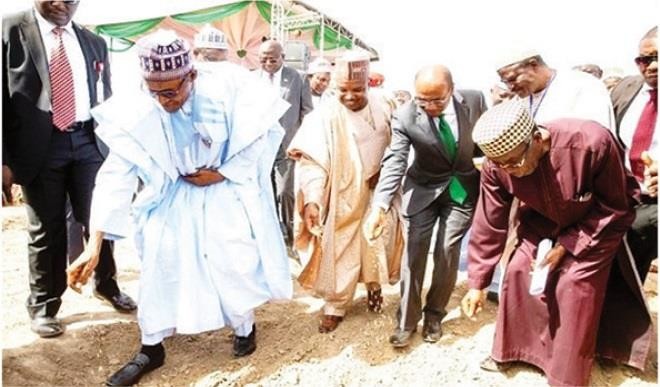Agric value chain: Key institutions supporting FGN’s Policy on Agric Business
Since the collapse of oil prices at the international market which plunged the Nigerian economy into recession, there has been renewed focus on diversification from mono-economy (depending solely on oil) to agriculture among others. The shift was also necessitated by the growing statistics of youth unemployment and the vast agricultural potentials that can drive a […]


Since the collapse of oil prices at the international market which plunged the Nigerian economy into recession, there has been renewed focus on diversification from mono-economy (depending solely on oil) to agriculture among others.
The shift was also necessitated by the growing statistics of youth unemployment and the vast agricultural potentials that can drive a more sustainable economic development in Africa’s most populous country.
Before President Muhammadu Buhari’s administration, the country’s import bill stood at over N1.6 trillion annually, something the new administration feels should not be allowed to continue!
To kick start the process of revamping Nigeria’s agro-economy, President Buhari, in November 2015, launched the Anchor Borrowers’ Programme (ABP) championed by the Central Bank of Nigeria (CBN) in Kebbi State.
The essence of the programme is to first, meet the country’s domestic food needs and save the billions of Naira spent on imports; and second, to begin to earn billions of dollars in food export as in the case of Kenya and South Africa in the continent.
So far, the programme has recorded huge successes in Kebbi and other states as rice import has dropped to just 10% in 2016, according to Vice President Yemi Osinbajo.
Hundreds of rice farmers were made millionaires by the programme.
During the flag off of the dry season rice and wheat farming programme in Birnin Kebbi by Mr. President, it was projected that by December 2016, Kebbi would deliver to the federal government 1million metric tons of rice. This, to many, was a tall ambition which might be difficult to achieve but the Chairman of the Rice Farmers in Kebbi State, retired Justice of the Supreme Court, Justice Uthman Muhammed, rose to the challenge and boldly told the president that by December 2016 Kebbi, under the Anchor Borrowers scheme, would produce over I million metric tons of rice.
By December last year, Kebbi did not only deliver on its promise but surpassed the projected 1 million metric tons of rice production capacity. Today, Kebbi is haven to rice millers and traders from different parts of the country and toast of other states in the area of rice production partnership. Last year Kebbi and Lagos State signed a 10-year MoU on rice production. The two states in December last year also jointly produced and distributed what they called LAKE RICE into the Lagos market.
Currently, two rice mills have been set up in Kebbi State, the LABANA Rice mill in Birnin Kebbi and WACOT Rice Mill in Argungu, for massive rice production in the state.
On the input (seed/fertiliser) front, the administration acknowledged that quality inputs are the essential elements in agricultural production. To this end, the Federal Government came up with the Presidential Fertiliser Initiative designed to provide affordable and quality fertiliser to all Nigerian farmers in order to upscale production.
This initiative was borned out of the federal governments bilateral agreement with the Kingdom of Morocco to supply phosphate basic component in NPK production. So far, the country has received over 40,000 tonnes of the phosphate and more are said to be under way.
On seeds, a number of steps have been taken to address the issues of using grains as seed and also apparatus put in place to deal with individuals or companies and their cohorts selling grains as seed in the country.
On access to credit, which is strategic to agricultural development, the federal government has restructured the Bank of Agriculture with the view to providing more effective services to the country’s agricultural community in order to unlock the sectors potentials.
The bank has already kicked off its activities with more funding to drive the agribusiness agenda of the federal government.
On budgetary allocation, the federal government has increased agriculture budget from N47 billion in the 2016 fiscal year to N92 billion in 2017, which shows a 50% increase in just one year.
These achievements are among the many steps the country has taken to address many decades of neglect and revive the sector with business approach so that Nigerians can now become millionaires like their counterparts in developing economies around the world.
In this special project, Daily Trust, the country’s Newspaper of the Year 2016, examines key institutions supporting the federal government’s policy on agribusiness to help the farmer tap from the country’s many seeds of gold.
